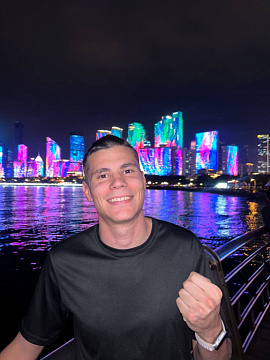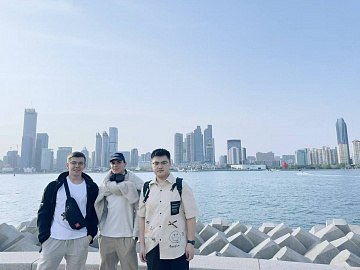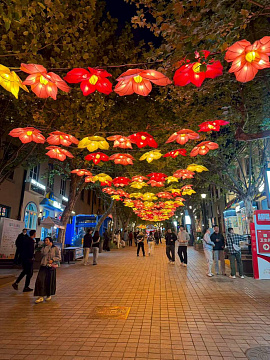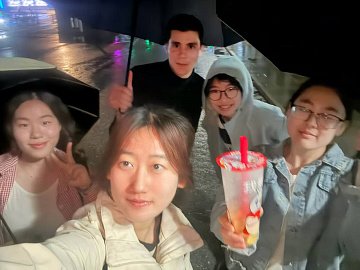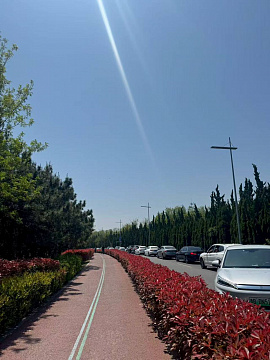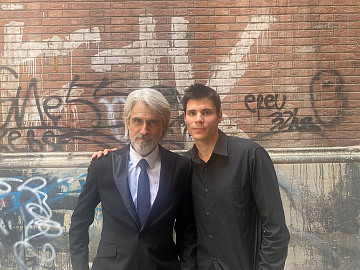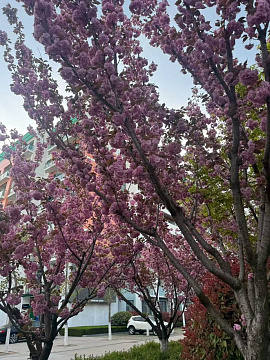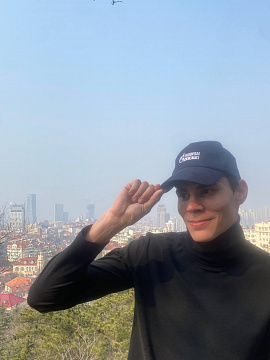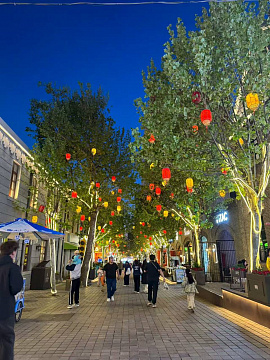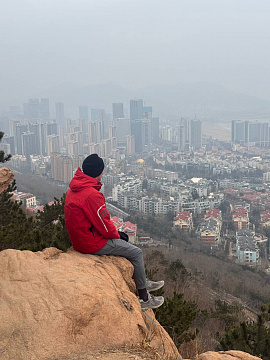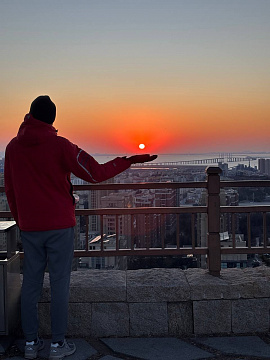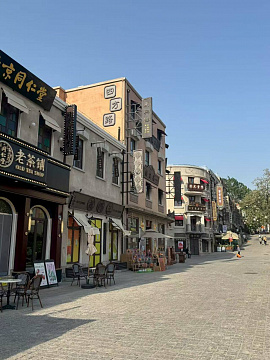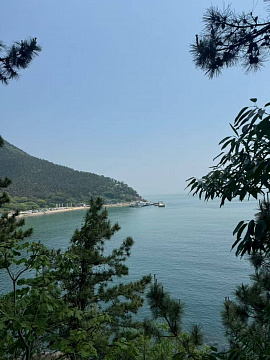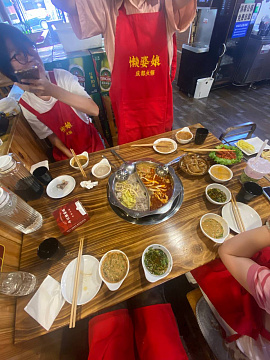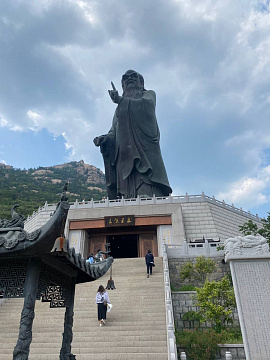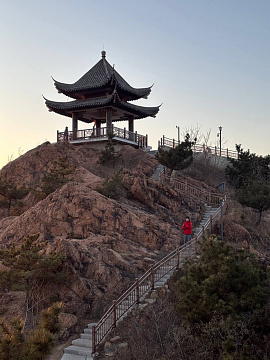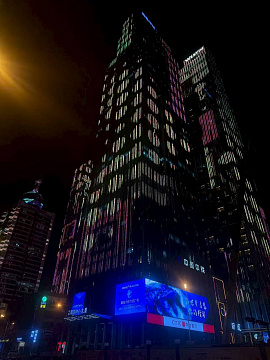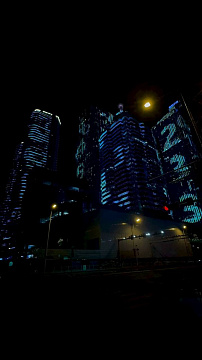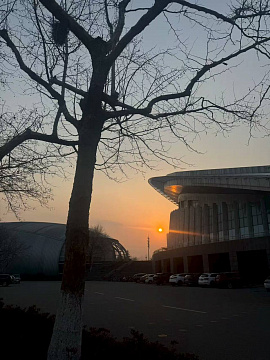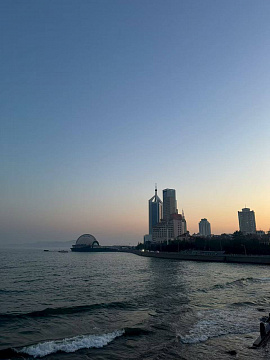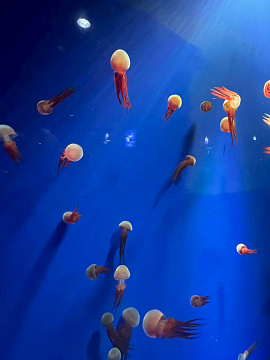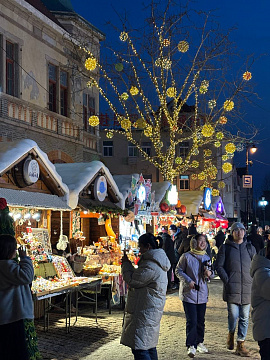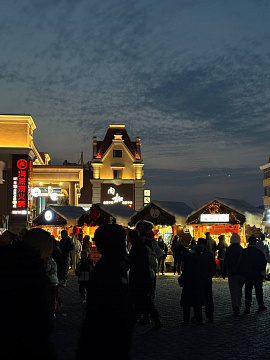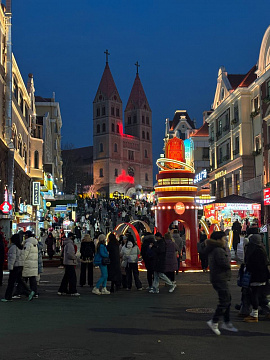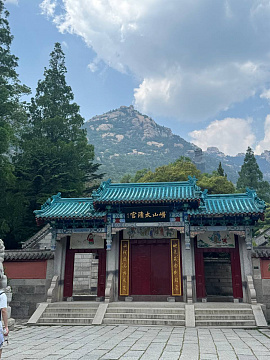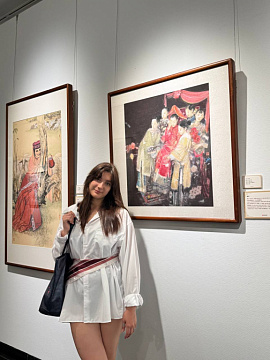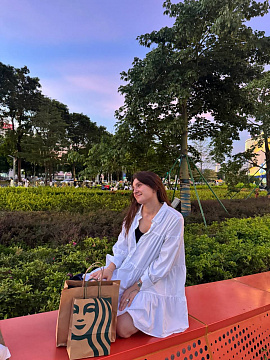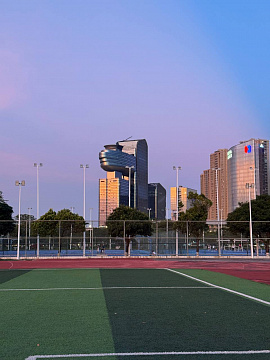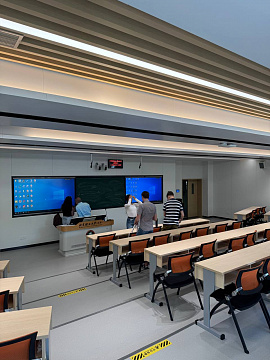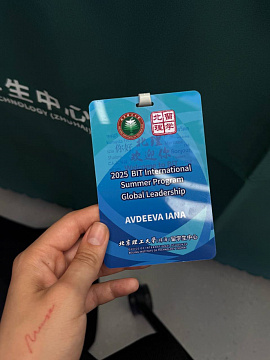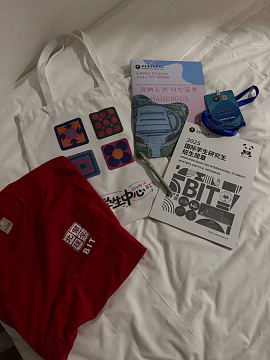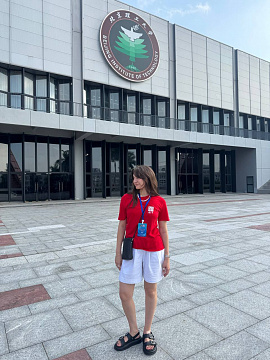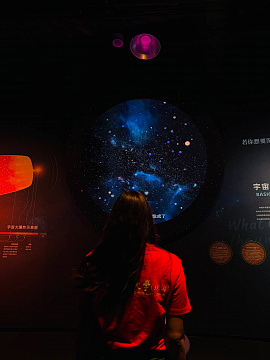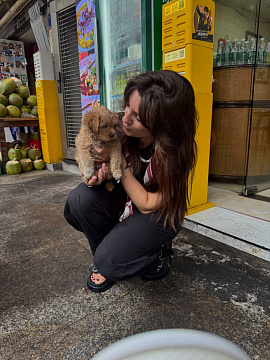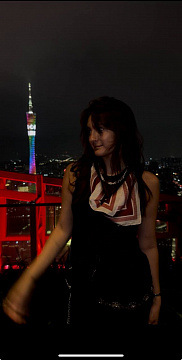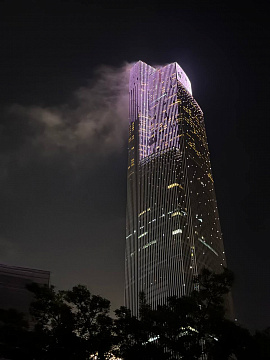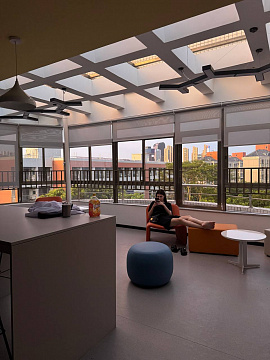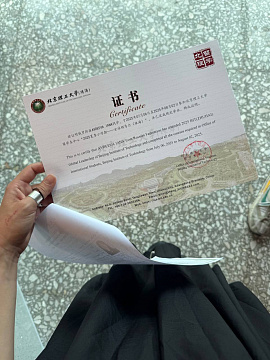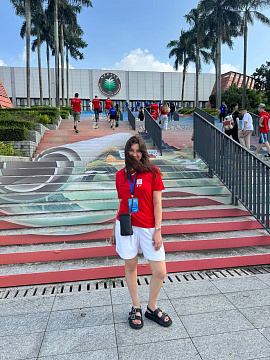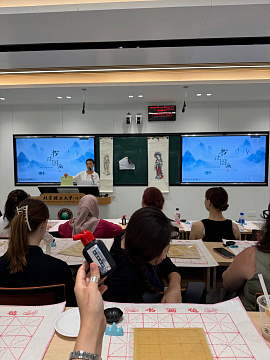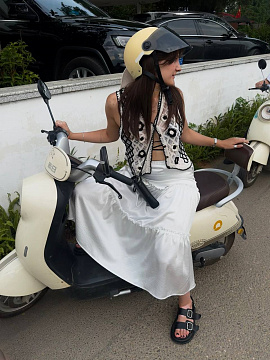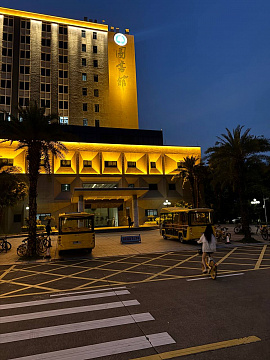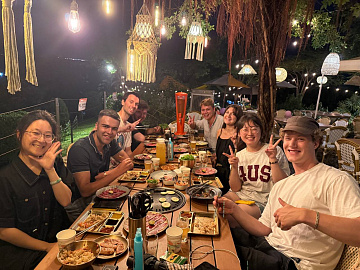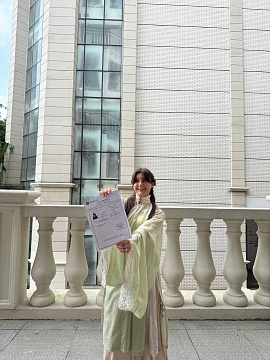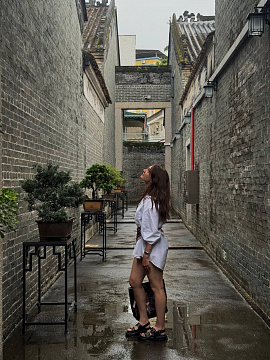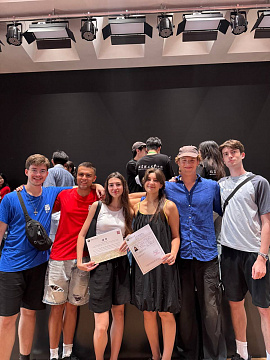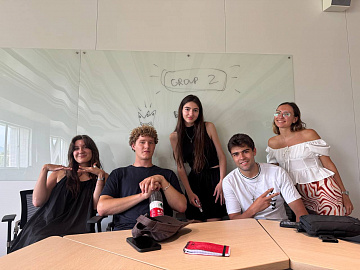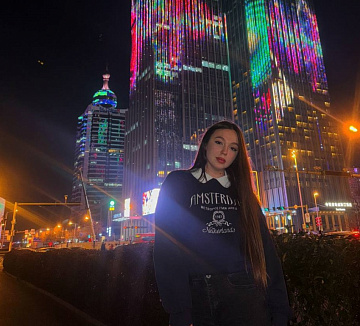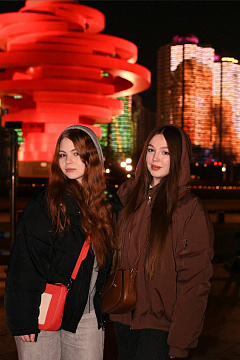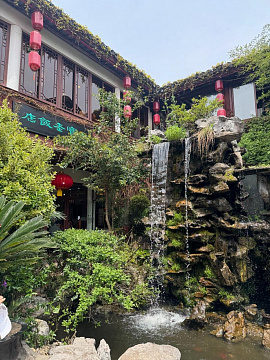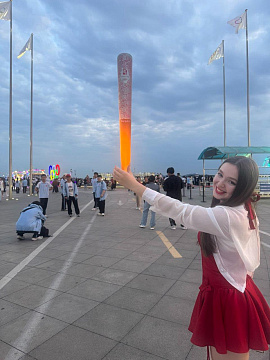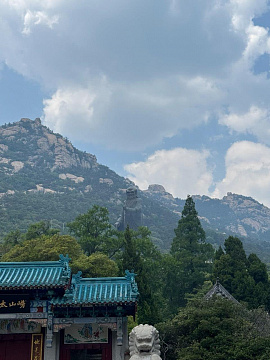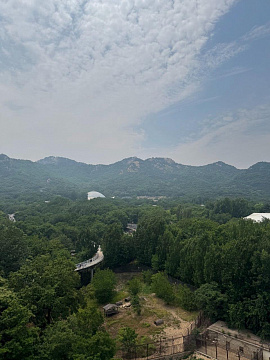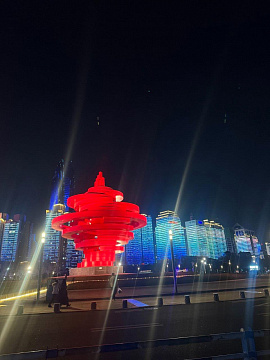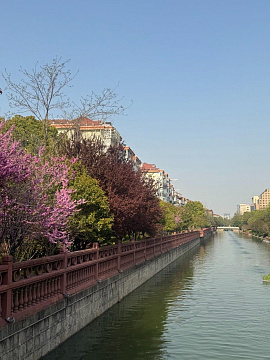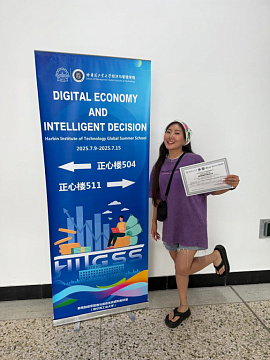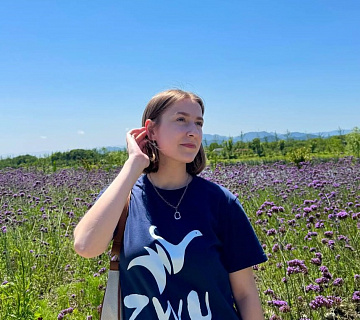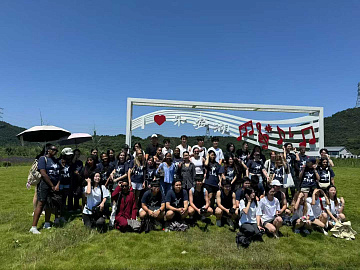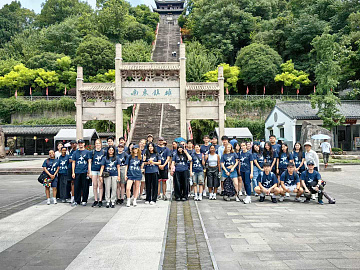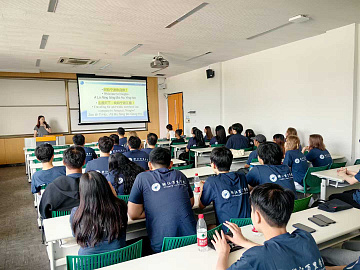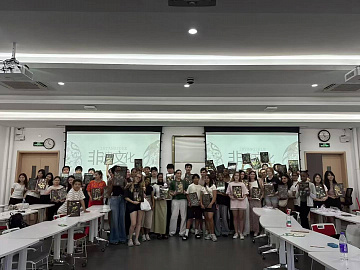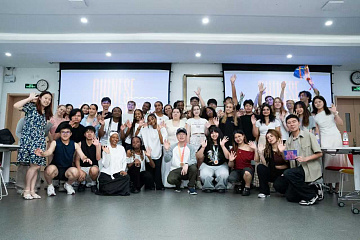
(A) Academic Results:
Initially, I consciously ventured into the unknown with a minimal grasp of Chinese, counting on native speakers to teach me correctly. I loved the methodology: they taught us fr om the very beginning, which was perfect for me, while even those who had already studied the language were able to solidify their foundation. The schedule was very conveniently structured, without overloading us. The main result is that I gained not just knowledge, but real freedom. Now I can confidently start a conversation with a native speaker, travel around China without fear, and I feel that even in a critical situation (for example, losing my phone) I will be able to explain myself and find help. This feeling of confidence is priceless.
(B) Personal and Cultural Impressions:
Qingdao struck me as one of the best cities on the planet, and that's no exaggeration. It has everything, and at the highest level: you can go from a quiet historic district with European architecture to a sparkling waterfront with futuristic skyscrapers in an hour, and then head to an almost deserted beach for a picnic. It's a city of contrasts and a city of celebration. I will 100% come back here someday. Life on campus was incredibly comfortable. I felt like I was living in my own little perfect world. Classes were sometimes held in our dormitory, so my morning commute was just pressing the elevator button. The campus had three huge canteens with such a variety of food that I never managed to explore all their floors during the entire internship. Local people and foreigners alike always treated me with friendliness and a readiness to help, whenever I asked.
(C) Social Aspect and Soft Skills:
Constant interaction with people from dozens of different countries, with completely different mentalities and views on life, definitely improved my communication skills better than any training could. I learned to find common ground with anyone, became more flexible, and more open to unfamiliar points of view.
In the end, this internship didn't just give me knowledge; it set a new direction. I developed a strong desire to study the language in depth and to apply for a Master's degree in China. The trip gave me a unique skill – to navigate life in another country at a high level; in some everyday aspects, I now feel even more confident in China than I do at home in Russia. I am infinitely grateful to the university for this opportunity and I really hope that the program will continue so that other students can also experience such a transformative adventure.
What difficulties did you have at the stages of preparation for the internship? What tips and recommendations can you give to future participants of the academic mobility program?
To be honest, I don't remember any catastrophic difficulties in the preparation. Everything went quite smoothly thanks to the clear instructions from the mobility office. A vivid memory is probably the need to get up a bit earlier a couple of times to make it to the opening of the consulate in Irkutsk and get in line. That was probably the main test of endurance—to see how much you really wanted to go, and if you were ready to sacrifice a few mornings for it. Seriously speaking, the main "difficulty" was, of course, a slight uncertainty before such a long and independent journey into the unknown. Going to another country for a year without knowing the language is exciting.
Describe the process of obtaining a visa. Your advice for future participants of the academic mobility program.
First, you need to gather the standard set: your international passport, the invitation from the university (JW202 form), and a completed application form. I think some other scans were required too, but I've forgotten the details. Then you go to pay the visa fee at a specific bank they tell you to use, and return to the consulate with the receipt. We were lucky because the consulate was right in my city. It took about five days. All that was left was to come on the appointed day and pick up the passport with the visa stamped inside.
What difficulties did you encounter upon arrival at the host foreign organization? Your advice to future participants of the academic mobility program.
There were no serious difficulties as such, but the main challenge in the first days was complete independence. It's important to understand: no one meets you at the airport with a sign and holds your hand. They give you information, and then you act on your own.
Right after arrival, you need to solve a whole quest:
Find the right dormitory on a huge campus by yourself.
Figure out the check-in at the reception desk wh ere almost no one speaks English.
Find out wh ere to buy bedding, dishes, and everything necessary for life.
Find a mobile operator's office to get a local SIM card.
Get to a bank, fill out forms, and open an account for a bank card.
How did I handle it? There were no volunteers in the sense we are used to (who walk around with you and help). All the information was provided at the office, but no one was involved in accompanying us. So my main tool became my communication skills. I managed to immediately meet several guys (both foreigners and locals) who had already figured everything out, and they were happy to help me: they accompanied me to some places, helped explain things.
Specify your expenses related to participation in an internship abroad (visa costs, cost of flight / travel to the place of internship, registration fees / taxes / deposits in the host organization, policy / medical services, if used, public transport, meals, accommodation. Your tips for cutting costs.
My main expenses looked like this:
1. Initial (One-Time) Costs:
1.1. Visa fee: 2,500 RUB.
1.2. Flight: A one-way flight from Irkutsk to Beijing cost approximately 18,000 RUB.
1.3. Transport to Qingdao: The high-speed train from Beijing to Qingdao cost between 2,000 and 4,500 RUB.
1.4. Dormitory deposit: 1,000 CNY (refundable).
1.5. Medical insurance (mandatory): 800 CNY per year.
1.6. Medical check-up (upon arrival): 500 CNY.
1.7. SIM card: The initial package cost 140-160 CNY, of which about 100 CNY was credited to the account. The subsequent monthly fee was 29 CNY.
2. Regular Monthly Expenses:
2.1. Accommodation: 500 CNY/month.
2.2. Food: 20-40 CNY/day on campus.
2.3. Mobile connection: 29 CNY/month.
2.4. Everyday necessities: Laundry in the dormitory — 2.5 CNY per load.
3. Transportation and Additional (Leisure) Expenses:
3.1. Public transport: Bus (1-3 CNY), metro (3-7 CNY), taxi (from 10 CNY).
3.2. Life hack: I recommend using ride-sharing services for long distances.
3.3. Gym: Approximately 100 CNY per month.
3.4. Entertainment and leisure:
3.5. Many of Qingdao's attractions (promenades, parks) are free.
3.6. Entry to paid public parks — up to 10 CNY.
3.7. Museum entry — on average from 0 to 80 CNY.
3.8. Movie ticket — about 30 CNY.
3.9. Entry to major attractions (zoo, Laoshan Mountain) — about 100 CNY.
More details on food: Very affordable, with a huge variety both on and off campus. Off-campus (budget places): In nearby cafes, you can find delicious meals from 15 CNY. A buffet-style lunch costs 40-60 CNY, hot pot — from 50 CNY per person. International cuisine: Enthusiasts can find Japanese sushi from 35 CNY, French pastries from 40 CNY. American fast food is also available: a snack at McDonald's (which, by the way, is conveniently open 24/7) — about 15 CNY, and a full meal at Pizza Hut — from 35 CNY. Restaurants: For special occasions, a dinner for two at a nice restaurant can cost around 800 CNY.
Life hack: In Qingdao, it's very easy to find both spicy and non-spicy food for any taste and budget. There are no problems finding familiar food. Water is always free, and in Korean restaurants, rice is also complimentary.
An important comment from personal experience: Do not skimp on insurance! A classmate of mine had appendicitis. The surgery cost 12,000 CNY, but thanks to his insurance, he got 7,000 CNY back.

What difficulties did you have at the stages of preparation for the internship? What tips and recommendations can you give to future participants of the academic mobility program?
The only challenge I faced during preparation was not realizing that an X2 visa does not allow entry into Hong Kong or Macau. This visa type permits only a single entry to mainland China, meaning that once you leave, you cannot re-enter without applying for a new visa. My advice for future BIT Zhuhai participants is to plan any trips to Macau or Hong Kong in advance—either before the program begins by flying into Hong Kong, or after it ends by departing from there.
Describe the process of obtaining a visa. Your advice for future participants of the academic mobility program.
The current process for obtaining a Chinese visa is simple and well-organized. First, gather all the required documents and complete the application form on the consulate’s website. You can then track the status of your application using the reference number. Once the status changes to “Awaiting passport submission”, bring a printed screenshot of your application along with your passport to the consulate. After submitting your documents and receiving the payment slip, pay the visa fee (2,500₽) at the bank. Processing typically takes about one week.
What difficulties did you encounter upon arrival at the host foreign organization? Your advice to future participants of the academic mobility program.
Hopefully, I had no difficulties upon arrival. The program’s volunteers and coordinators were incredibly helpful from the 1st day —assisting with SIM card registration, setting up AliPay and WeChat Pay, and explaining how to use essential apps. They remained a constant source of support throughout the entire program.
Specify your expenses related to participation in an internship abroad (visa costs, cost of flight / travel to the place of internship, registration fees / taxes / deposits in the host organization, policy / medical services, if used, public transport, meals, accommodation. Your tips for cutting costs.
To live comfortably for a month, I would recommend budgeting at least 60,000₽. My main expenses were: approximately 36,000₽ for round-trip airfare, 2,500₽ for the visa, a refundable dormitory deposit of 100 CNY (~1,100₽), daily spending on meals, coffee, and shopping averaging around 65 CNY (~750₽), a monthly bicycle rental for 14 CNY (~150₽), and taxi rides into the city ranging from 8 to 90 CNY, which can be shared with friends to save costs.

Overall, I have the most positive impressions of the internship. It was a valuable and rich experience that allowed us not only to deepen our knowledge of the Chinese language, but also to immerse ourselves in the culture of the country, better understand the mentality of the locals and their way of life. During the internship, I managed to significantly improve my speaking skills, expand my vocabulary, and overcome the language barrier. Live communication with native speakers, participation in cultural events and excursions have made learning the language more natural and interesting. The internship proved to be useful for me both academically and personally. Academically, I got a practice that is impossible to get in a regular classroom: I learned "live" to hear and understand different accents, react faster in a dialogue and use the language in real conditions. On a personal level, I have become more independent, open to new things, and have improved my skills in adapting to a new environment and intercultural communication.
What difficulties did you have during the preparation stages for the internship? What tips and recommendations can you give to future participants of the academic mobility program?
While preparing for an internship in China, I encountered several difficulties that I think many students face. One of them is the transfer of money: the exchange of rubles for yuan turned out to be difficult, especially given the restrictions in Russian banks. There were also difficulties in filling out some documents, such as visa applications. The COVA system is quite strict: it is important to avoid mistakes, specify all the data accurately, and the interface is not always intuitive. I had to carefully figure out which documents to upload, how to correctly specify information about my studies, registration, invitation, etc. The main advice is not to panic or worry if something doesn't work out right away. Preparing for an internship is really a lot of steps, but everything is solvable. Just move in stages.
Describe the visa application process. Your advice for future participants of the academic mobility program.
The process of obtaining a Chinese visa includes several steps: first, you need to fill out a form on the COVA website, then make an appointment to submit documents through the AVAS system, and after that, personally bring the entire package of papers to the consulate or visa application center. Difficulties mostly arise when filling out a questionnaire, especially if you are doing it for the first time. Some sections require attention to detail — it is important to enter everything correctly in order to avoid mistakes. But in general, if you carefully read the tips and instructions, the process is quite clear and logical.
What difficulties did you encounter upon arrival at the host foreign organization? Your advice to future participants of the academic mobility program.
The most difficult thing upon arrival was to navigate in a new place without knowledge of the language and the Internet. At first it was a bit stressful — it was difficult to figure out where to go, how to call a taxi or buy a ticket. There was no Internet connection, and I couldn't translate anything through an online translator. But, fortunately, everything in China is organized conveniently and clearly, and with the help of signs and pictures we managed to get to the university. The main advice is not to panic, plan your route early and download offline maps.
Please indicate your expenses related to participation in an internship abroad (visa expenses, flight/ travel costs to the internship site, registration fees/taxes/ deposits at the host organization, policy/ medical services, if used, public transport, meals, accommodation. Your tips for cutting costs.
While participating in an overseas internship in China, my main expenses were: air tickets cost about 50,000 rubles (round trip), visa processing cost about 5,000 rubles, and hostel accommodation cost 25,000 rubles for the entire period. Medical insurance cost 7,000 rubles. There were also minor expenses on arrival — about 5,000 rubles (for a SIM card, deposit, water, etc.). Public transport in China is inexpensive — about 100-200 rubles per week. Food is also affordable, especially in student canteens, where there is a large selection and affordable prices. In general, expenses can be reduced by booking tickets in advance, taking out insurance at the student rate, using travel or transport cards and eating in the university cafeteria. It is also worth saving a small amount for unforeseen expenses in order to feel calm in the first days.

What difficulties did you have at the stages of preparation for the internship? What tips and recommendations can you give to future participants of the academic mobility program?
Overall, there were no major difficulties. The most challenging part was preparing the documents, but even that wasn't too complicated-the International Office
was always ready to help, and staff provided guidance whenever questions arose.Don't miss the chance to participate in exchange programs and internships. And don't be afraid, even if you're traveling alone or feel your language skills aren't perfect. It's not as hard as it may seem-people are kind and always willing to help. Dream big, keep learning, and explore the world!
Describe the process of obtaining a visa. Your advice for future participants of the academic mobility program.
First you need to wait for the invitation from the university. After receiving it, you can log in/create a personal account on the consulate website to fill out the application form and submit all required documents. Once your application is approved, you should print out the QR code - you'll need to bring it with you to the consulate along with your international passport and Russian domestic passport. At the consulate, you'll need to submit these documents and provide fingerprints if required. They will then give you a payment receipt. The visa will cost 2,500 rubles plus a 50 ruble commission fee. Important: When you go to the bank to pay the visa fee, remember to bring this exact amount in cash. After making the payment, you'll be able to pick up your visa exactly one week later.
What difficulties did you encounter upon arrival at the host foreign organization? Your advice to future participants of the academic mobility program.
The first days at the host organization were quite challenging due to insufficient organizational support. No one met us at the airport, which caused difficulties with transportation and initial adjustment. Volunteers provided assistance only during the first few days, after which we had to handle all logistical and everyday matters on our own.
Specify your expenses related to participation in an internship abroad (visa costs, cost of flight / travel to the place of internship, registration fees / taxes / deposits in the host organization, policy / medical services, if used, public transport, meals, accommodation. Your tips for cutting costs.
Visa: 2,550 RUB
Flight: 36,750 RUB
Bus fare: 2 CNY
Campus meal: about 200 RUB per serving
Shower: 1 CNY per 5 minutes

What difficulties did you have at the stages of preparation for the internship? What tips and recommendations can you give to future participants of the academic mobility program?
Collecting documents is the most unpleasant part of preparation, but I managed to do it without much difficulty. I recommend that future participants of the program collect documents on time, do not postpone everything until the last day.
Describe the process of obtaining a visa. Your advice for future participants of the academic mobility program.
I received an invitation from a Chinese university, filled out a visa application form online, submitted documents to the Consulate General of the People's Republic of China, paid the visa fee and received a visa a week later.
What difficulties did you encounter upon arrival at the host foreign organization? Your advice to future participants of the academic mobility program.
In China, almost no one knows English, so there were difficulties with communication. Since I do not speak Chinese fluently, I had to constantly use an interpreter. My tips: immediately get a Chinese SIM card upon arrival, set up Alipay/WeChat Pay, download a good translator and the Didi app for calling a taxi.
Specify your expenses related to participation in an internship abroad (visa costs, cost of flight / travel to the place of internship, registration fees / taxes / deposits in the host organization, policy / medical services, if used, public transport, meals, accommodation. Your tips for cutting costs.
Visa – 2500 rubles.
Flight – 40000 rubles
The cost of the program is 77000 rubles.
Public transport fare – 2000 rubles.
Meals – 25000 rubles.
Medical insurance – 2000 rubles.

